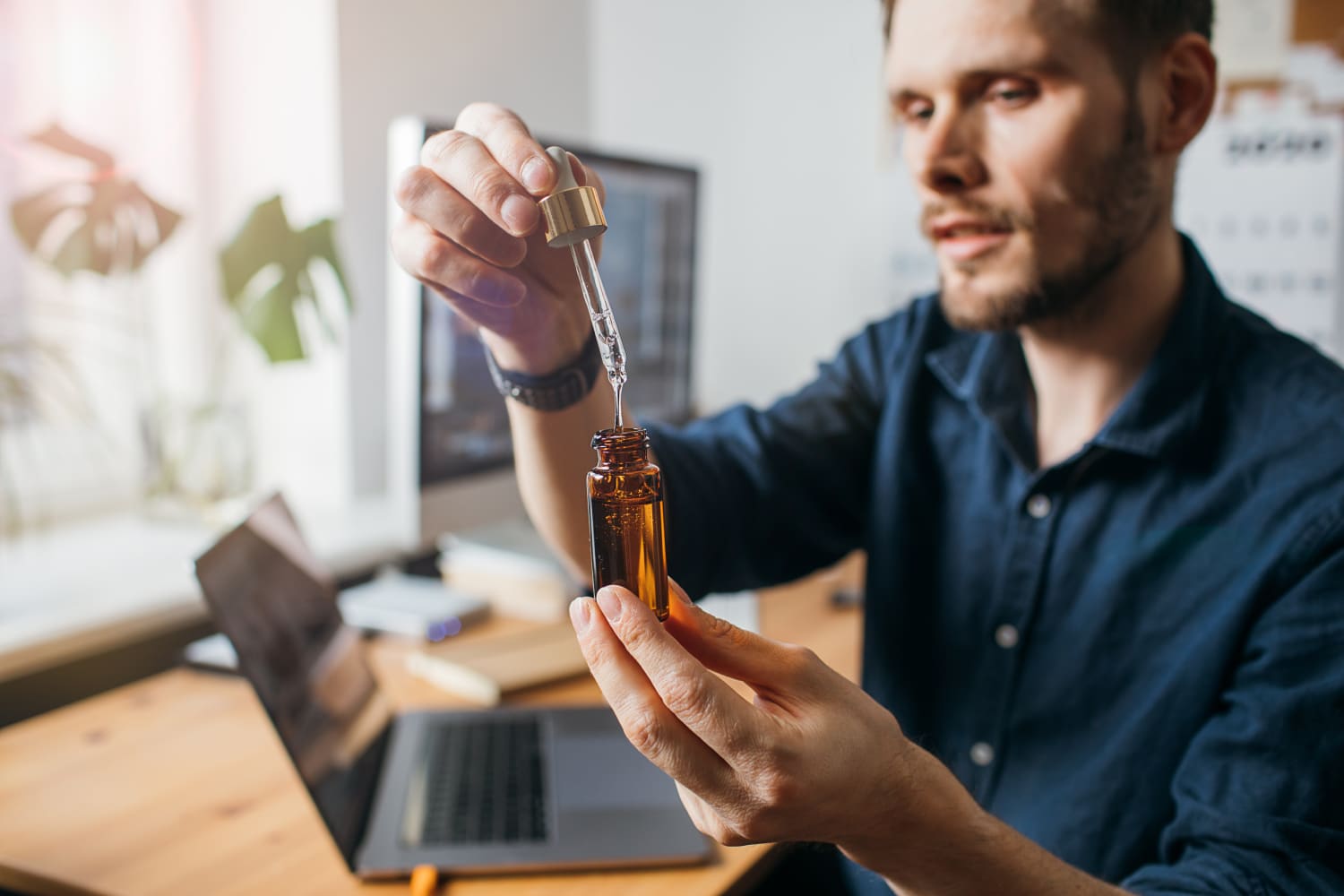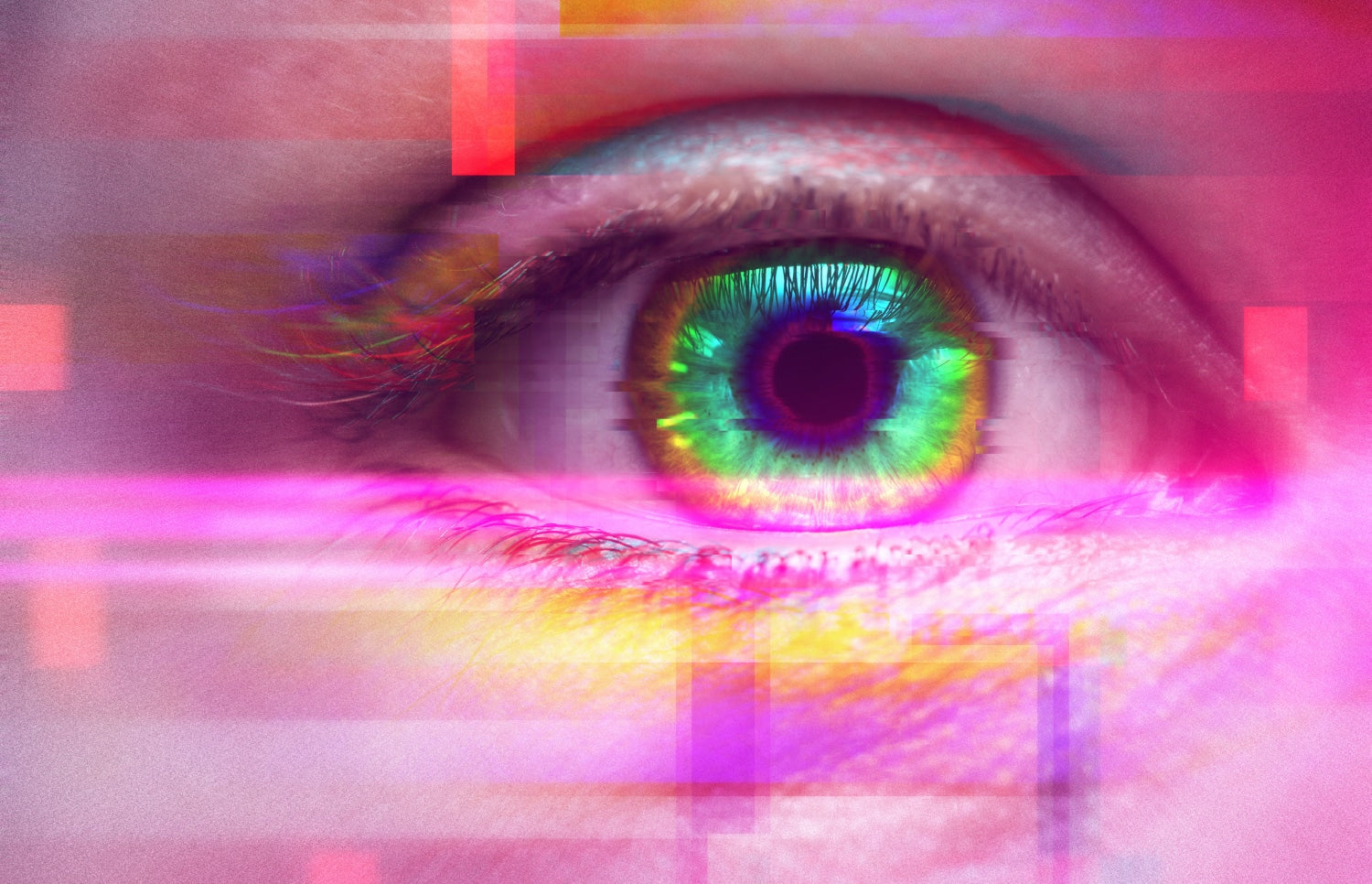Is CBD Psychoactive?
|
| The buzz surrounding CBD has reached a fever pitch, and it's easy to understand why. This fascinating compound, derived from the cannabis plant, promises many potential health benefits. Even better, it doesn’t cause the same mind-altering effects that are typically associated with its cousin, THC. |
But is CBD truly devoid of psychoactive properties? In this article, we'll embark on an engaging and approachable exploration of CBD and its effects on the human body.
What Are CBD and THC?

To gain deeper insight into the psychoactive properties of CBD, it is crucial to examine the two primary cannabinoids present in the cannabis plant: cannabidiol (CBD) and tetrahydrocannabinol (THC). While these compounds share a similar molecular structure, they demonstrate distinct differences in their interactions with our bodies.
CBD and THC both interact with our body's endocannabinoid system, yet their impact on cognitive functions varies significantly.
For instance, THC is renowned for its psychoactive properties, inducing the characteristic "high" sought by recreational cannabis users. In contrast, CBD does not elicit the same mind-altering effects, rendering it a more attractive option for those interested in potential therapeutic benefits without cognitive impairment.
When discussing CBD, it is vital to consider its source. The cannabis plant comprises two primary varieties: Cannabis sativa and the hemp plant. Both plants contain CBD and THC; however, their concentrations differ significantly.
Cannabis sativa plants typically exhibit higher THC levels. In contrast, hemp plants are legally mandated to contain less than 0.3 percent THC in the United States, making them popular sources of CBD products.
What Is the Endocannabinoid System?

As we probe further into CBD, it becomes imperative to comprehend the endocannabinoid system (ECS) – a sophisticated cell-signaling network that plays a pivotal role in preserving our body's homeostasis.
The ECS depends on cannabinoid receptors, primarily CB1 and CB2 receptors, for proper functioning. CB1 receptors, predominantly located in the brain and central nervous system, influence neurotransmitters that regulate mood, memory, appetite, and pain. These receptors can serve as the primary targets for THC, eliciting the psychoactive effects associated with its use.
THC's molecular structure enables it to bind directly to CB1 receptors, simulating the naturally occurring endocannabinoids in the body. This binding process releases neurotransmitters, ultimately causing the psychoactive effects commonly attributed to THC.
In contrast, CBD exhibits a unique relationship with the endocannabinoid system. Rather than binding directly to CB1 receptors like THC, CBD is believed to affect receptor activity and influence their interactions with other cannabinoids.
This distinctive interaction is the primary reason CBD does not produce the same psychoactive effects as THC.
What CBD Products Are Available?
The ever-growing CBD market offers various products and formulations to suit different needs and preferences.
Some of the most popular options include:
-
Oils, tinctures, and edibles: These versatile forms of CBD can be consumed directly or incorporated into various recipes, providing a discreet and palatable way to administer CBD.
-
Gummies, creams, and lotions: CBD-infused gummies are a popular choice for those seeking a portable and convenient method of consumption. Creams and lotions, on the other hand, offer targeted relief when applied directly to the skin.
-
CBD vapes: Inhalation of CBD through vaping devices allows for rapid absorption into the bloodstream, resulting in a faster onset of effects. However, the safety and long-term consequences of vaping are still under investigation.
It’s also important to consider what type of CBD you’re using.
For instance, full-spectrum CBD contains all naturally occurring cannabinoids, terpenes, and flavonoids from the cannabis plant, potentially offering enhanced therapeutic benefits due to the entourage effect. On the other hand, hemp-derived CBD is sourced from hemp plants containing less than 0.3 percent THC and is typically used to make CBD isolate or broad-spectrum formulations.
Retailers must ensure accurate labeling of CBD products, including the source, cannabinoid content, and third-party testing results of the CBD. This transparency enables consumers to make informed decisions and promotes adherence to regulatory guidelines.
Are There Side Effects of CBD?
As CBD gains widespread recognition for its therapeutic properties, understanding its psychoactive effects and potential side effects becomes increasingly important.
CBD's non-intoxicating nature sets it apart from THC, as it does not elicit the characteristic "high" or mind-altering effects typically associated with THC consumption.
However, some individuals may experience drowsiness, impairment, or other adverse effects when using CBD. These side effects are generally mild and may vary depending on dosage, individual sensitivity, and interactions with other medications.
Unlike THC, which can exacerbate psychosis in susceptible individuals, CBD has shown promise in mitigating psychotic symptoms and influencing serotonin levels, potentially offering benefits for mental wellness.
CBD's interaction with the endocannabinoid system can also influence various central nervous system functions, including pain sensation, mood regulation, and memory processing. However, unlike THC, CBD does not produce the same psychoactive effects or cognitive impairment, making it a more appealing option for therapeutic use.
Is CBD Legal?

As CBD continues to garner attention and acceptance, addressing the surrounding issues of legalization, regulation, and safety concerns is critical.
According to the FDA
The U.S. Food and Drug Administration (FDA) plays a crucial role in ensuring the safety, efficacy, and quality of CBD products by overseeing the approval process for medications and establishing guidelines for manufacturers and retailers.
As the regulatory authority on food, drugs, and dietary supplements, the FDA aims to protect public health by monitoring and enforcing compliance with established standards.
To accomplish this, the FDA evaluates the safety and effectiveness of CBD products before granting approval, particularly for medical applications. This process involves rigorous clinical trials and thorough reviews of scientific data, ensuring that only reliable and safe CBD products are allowed on the market.
Currently, the only CBD product that the FDA has officially approved for therapeutic use is Epidiolex, a drug used to treat epilepsy.
Continued research, clinical trials, and reliable government resources are essential for further understanding CBD's safety, efficacy, and therapeutic potential. This may ultimately lead to better regulations, product quality, and access for those in need.
According to State and Federal Law
While federal law still classifies cannabis as a Schedule I substance under the Controlled Substances Act, numerous states across the United States have taken a different stance, legalizing medical cannabis products and allowing patients to access CBD and other cannabinoids for therapeutic purposes.
This shift in policy recognizes the growing body of evidence supporting the medical potential of cannabis and its various compounds.
Does CBD Show Up on Drug Tests?
Although CBD products derived from hemp plants must contain less than 0.3 percent THC, trace amounts may still be present, potentially causing false-positive results on drug tests. Therefore, consumers should be aware of this possibility and make informed decisions when selecting products for CBD use.
What Is the Future of CBD?
As CBD gains mainstream acceptance and its therapeutic potential becomes more widely recognized, several challenges and opportunities lie ahead.
Advancing Scientific Research
Ongoing scientific research will be crucial in uncovering CBD's therapeutic applications and addressing safety concerns. This research may also pave the way for developing new, innovative CBD formulations and delivery methods.
Evolving Regulatory Frameworks
As the legal landscape surrounding CBD and cannabis evolves, regulatory frameworks must adapt accordingly. This includes refining manufacturer guidelines, ensuring accurate labeling and product safety, and providing clear guidance for consumers.
Expanding Market Opportunities
The CBD market's rapid growth presents significant opportunities for businesses and entrepreneurs. Still, it also calls for responsible practices to ensure that products are safe, effective, and of the highest quality.
Addressing Misconceptions and Stigma
Despite CBD's growing popularity, misconceptions and stigma persist. Education and awareness campaigns will be essential in dispelling myths, promoting accurate information, and fostering a greater understanding of CBD's therapeutic potential.
Balancing Accessibility and Quality
As CBD products become more widely available, striking the right balance between accessibility and product quality will be paramount. In addition, ensuring that consumers have access to safe, effective, and accurately-labeled CBD products will be essential to the industry's long-term success and credibility.
Embracing CBD for Holistic Health
As the demand for natural, non-psychoactive wellness supplements continues to rise, CBD has emerged as a frontrunner by providing various health benefits without the mind-altering effects commonly associated with THC.
The advantages of embracing CBD as a wellness supplement include the following:
-
Suitability for a wider audience: Since CBD does not induce psychoactive effects, it can be used by a broader range of individuals, including those who may be sensitive to THC or wish to avoid its intoxicating effects.
-
Predictable outcomes: The non-psychoactive nature of CBD allows for more predictable outcomes, reducing the likelihood of unexpected side effects and making it easier for users to incorporate it into their daily routines.
-
Reduced risk of dependency: CBD does not possess addictive properties, minimizing the risk of dependency and making it a more sustainable option for long-term use.
-
Complementary to other therapies: CBD's non-psychoactive profile makes it a great candidate for combining with other therapies, allowing users to explore synergistic effects and tailor their wellness plans to their unique needs.
-
Legal accessibility: CBD derived from hemp plants is legal in many jurisdictions, making it more accessible to individuals seeking natural, non-psychoactive wellness solutions without the legal concerns surrounding THC.
-
Versatility in formulations: CBD's non-psychoactive nature allows manufacturers to create a wide range of products, including tinctures, gummies, creams, and lotions, catering to diverse preferences and offering convenient options for incorporating CBD into daily life.
By offering a non-psychoactive, natural wellness supplement with numerous potential health benefits, CBD presents an attractive option for individuals seeking holistic approaches to their well-being. As the understanding of CBD's therapeutic potential grows, so does the opportunity to harness its unique properties to support our health and overall wellness.
The Bottom Line
Our exploration of CBD's non-psychoactive nature and its diverse applications has shed light on its potential to revolutionize the world of wellness supplements. As we strive for a healthier, more balanced lifestyle, CBD offers a unique opportunity to address various health concerns while avoiding the psychoactive effects of THC.
Furthermore, embracing CBD's therapeutic potential empowers individuals to optimize their body's performance, ease discomfort, and lead more active lives.
Muscle MX is committed to providing clean, simple, and effective CBD products designed with your health in mind. By combining modern science with traditional remedies, Muscle MX aims to help individuals unlock the power of CBD and experience its transformative effects for themselves.
Join Muscle MX on this journey towards holistic wellness and discover how their innovative CBD products can help support a more balanced life.
Sources:
The endocannabinoid system: Essential and mysterious | Harvard Health Publishing
Can Marijuana Trigger Psychosis? | Childmind.org
Drug Fact Sheet: Vaping and Marijuana Concentrates | DEA.gov
FDA and Cannabis: Research and Drug Approval Process | FDA













































